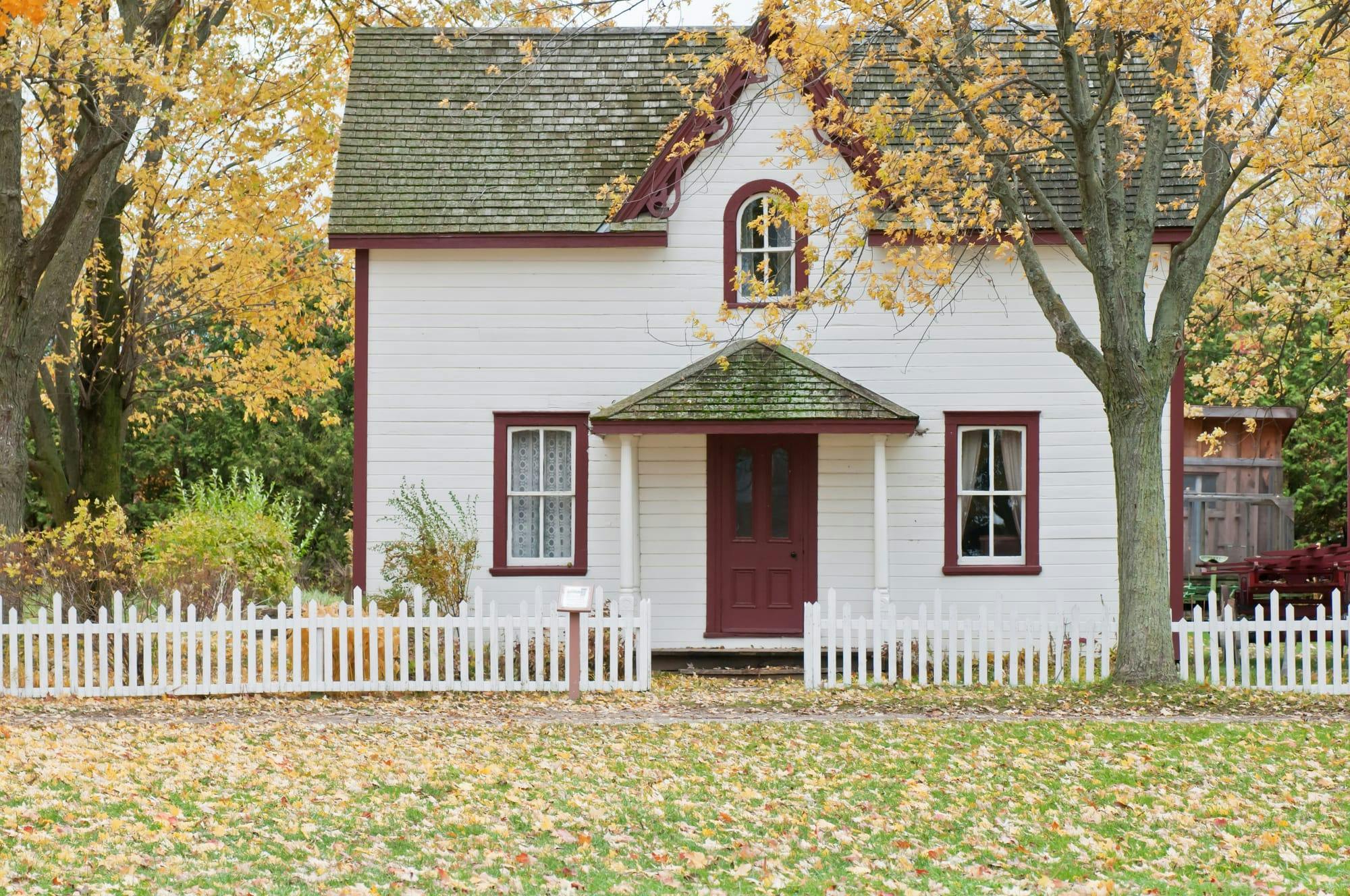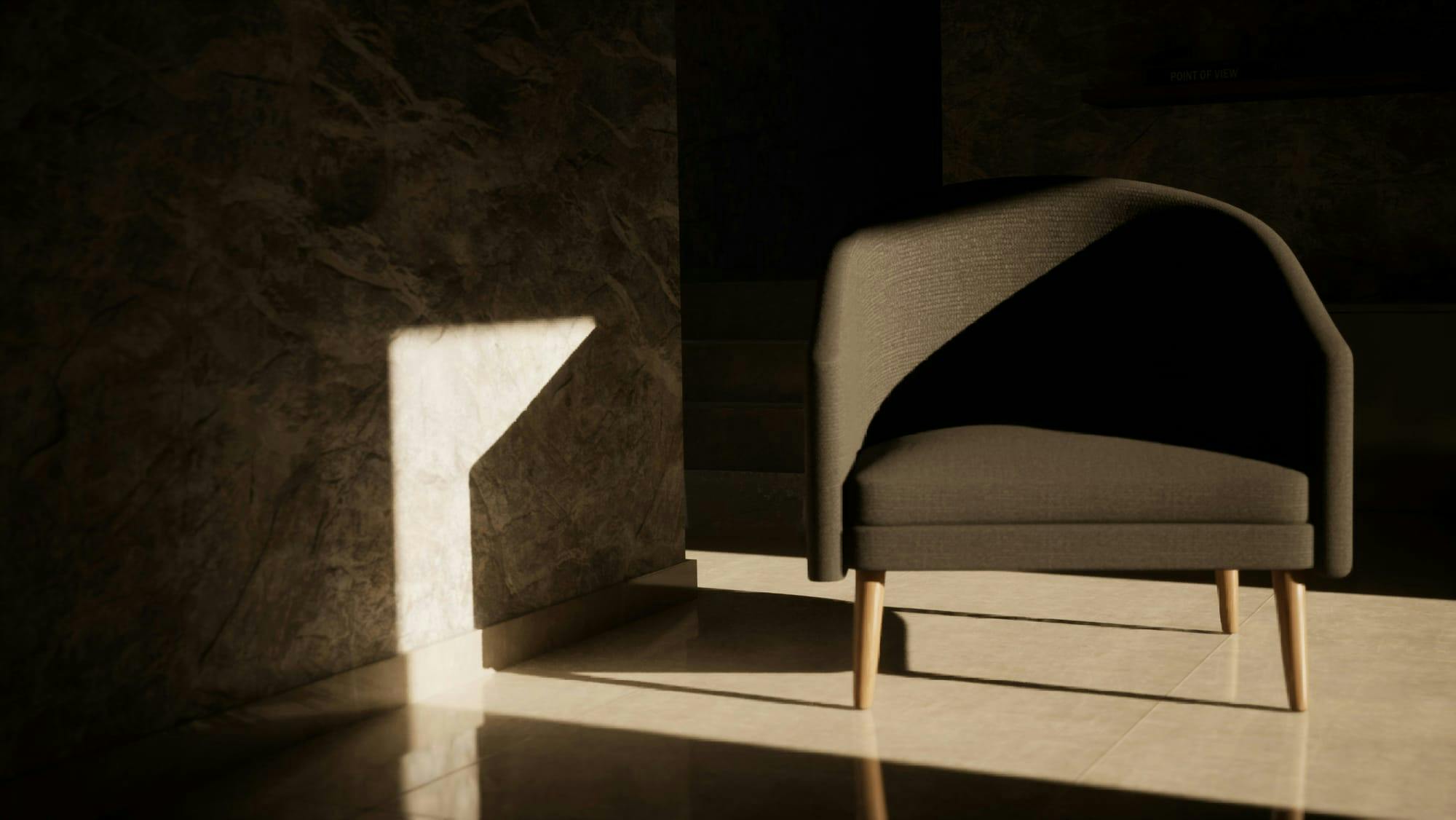Why Making a Home Is Hard
A reflection on the concept of "home," the challenges and rewards of creating a space that mirrors one's life and growth, and the courage and introspection needed in an ongoing, deeply personal journey.

Making a home is hard, for many good reasons.
Overview
“Home” was my first tattoo (家) – which I got on my first big adventure away from home. 家 happens to mean “family” in Chinese, too. My relationship with this meaning was clearer. Yet something in the meaning of “home” also seemed important, even if I couldn’t articulate why.
During Covid, I began working at home. Today so much of my life I spend at home. Home is my center – where I eat, sleep, bathe, work, spend time with my family, and much more. Sometimes, these activities are not so separate. My daughter will joyfully interrupt work calls.
Now, in a surprise to me and most who know me well, I am building a website, Spoken, that helps people make their own homes.
While “home” can mean many things, given all its activities, to me it means:
- self-expression - my home is my personal universe, a mostly intentional, careful curation of what I need, what my family needs, and who I am.
- comfort - my home holds rituals of self-care; when I am worn out, my home reflects back to me the love imbued in its creation and upkeep.
- growth - precisely because of this comfort — where I can rest after a big day — I can take greater risks and embrace grander adventures out into the outside world. I can, after all, return to our home.
- connection - my home is where my wife and I talk about the day after dishes and where my daughter and I play with toys on the living room floor; it’s also a happy gathering place for friends and family for our annual Holiday party and the occasional family-of-choice dinner or game night.
While these concepts sound lovely, they are not actionable. It is practically free to poetically muse on the benefit of a well-functioning home. It sells well in 10 Instagram reels. The overlooked reality is making a home is hard.
Making a Home is Hard
Making a home is hard, first for practical reasons. The space we make into homes is increasingly expensive, often smaller than we’d like, and must accomplish many things.
Then there is the matter of preferences. Yes, understanding my preferences surely matters. But how do I know my preferences? So many industry terms are alienating. What does Mid-century Modern mean, anyway?
There are some tools and design principles – some I’ll get to in later posts – that can help. Yet these principles and tools can only take you so far.
Ultimately, making a home is hard, just like cooking a great homemade meal is hard — it is a labor of love, requiring patience, persistence, and self-understanding.
Home Can Nourish the Soul
My Aunt is an ordinary chef, yet she makes extraordinary homemade meals. She infuses her meals with her essence. I leave feeling full but also nourished in my soul. Well-made homes have the same effect.
For those of you who have parents in memory, have you ever noticed how you slip back into being a child in their home? This alludes to this power in homes. Homes can cast spells — spells of comfort and joy or spells of pain and suffering.
The kind of cooking my Aunt does is hard. Her magic lies not just in the meal but in the cooking itself. The act of cooking with care and love is a form of self-expression and a gift to those who will enjoy the meal.
Still, home-cooking is easier than home-making in two ways. First, while you can infuse a meal with love once, you must infuse a home with love every day. So, unlike meals, homes are never finished.
Second, while you make loving meals for others, you must make a loving home for yourself (and your family). After you leave your primary guardian's home, no one can make your home except you and anyone else who lives with you.
A Home of One’s Own
For most people I know, with some exceptions, taking care of themselves is harder than taking care of others.
Other people’s needs are often more tangible. (A hint to how hard self-care can be is that you see your friend’s needs while they don’t.) And there are so many more needs to focus on in the world.
Attention outward is easier than attention inward because attention inward demands introspection and confronting the complexities and contradictions within us.
This means I must reflect on what “home” meant to me when I was a child, what it means to me today, and what I hope it will mean to me in the future. This journey can be painful and is not determined.
I likely don’t need to explain to you why considering your childhood home may be painful. I hope it is not. In this case, you may want to repeat some of its most essential elements.
One surprising gift if your home was painful is that understanding why it was painful can inform your aspirations for what your home might become – loving, secure, warm, etc.
Of course, your journey is unique. I’ve offered to you what home means to me. This is not the same as what it means to you.
To Make a Home, Alone or Together, Takes Courage
Making a home is, therefore, a courageous act. This courage lies not in the paint colors or furnishings but in the vulnerability required to manifest one’s inner self in a physical space and to do so every day.
In making a home, we reveal our own ideals — our notions of comfort, security, and beauty. It is a kind of art where every choice is a reflection of our history and our dreams.
This can be complicated enough when solitary. Yet we often must make homes with others — a roommate, partner, parent, or child – who have different needs and dreams than our own. Harmonizing these needs and dreams, to the extent we can, requires empathy, openness, and, again, personal courage.
If this were not complex enough, homes are alive. An ailing parent moves in or dies. A child arrives. A partnership dissolves. A new potential partner enters your life. A skin is shed. As we re-imagine ourselves, we must reimagine our homes.
Home-making, therefore, is both a kind of constant brave self-expression and never-ending shared vulnerability.
Returning to “Home”
My home as a child was a complex place. My parents loved each other, but they also didn’t know one another very well. (I was a surprise.) So there was a lot of tension in the house. In hindsight, there are parts of my childhood home that seem like a kind of prison of which I was unaware – and from which I hope to release myself.
My parents were also deeply committed to one another and cared deeply about their home. This I hope to replicate. My father had a furniture store (lol), and so a desk that he loved — the one where I sit now — reminds me of his good qualities even though he is no longer with me.
I now have a daughter. We had to make space for her in our home, which was hard. I am also well aware that decisions that may seem trivial to me will shape her understanding of her own.
It is now clearer to me why “home” matters. Home is at once the place where we can, with effort, form the most unshakeable sense of ourselves — something deeply personal that no one can take away from us.
Yet, it is also the place where we experience our deepest dependencies. I hardly know myself without my wife. Our home surely wouldn't function without her. My daughter needs me, and she needs our home. Any of us would be shattered if we lost any of the others.
It is precisely this combination of independence and dependence that makes us human. We make ourselves, but only with the help of others. We make our homes as our homes make us.
Our Raison d'être
Given that making a home is so hard, it really shouldn’t be any harder. That’s why it really pissed us off when, in the presence of all this honorable worthwhile effort, we found ourselves in a confusing, icky, maybe predatory environment that is the state of online furniture shopping.
Thus, our mission and this site. What does home mean to you? I'd love to hear from you at [email protected]
Geoff Abraham
Co-founder & President of Spoken
Geoff is the co-founder and President of Spoken. He is a Dad. He holds a BA from UT Austin (Plan II) and an MBA from Stanford. Geoff has built several successful businesses, including a bicycle taxi business in San Francisco which he ran for 10 years with his wife, Mimosa. He is an executive coach, and he actively invests in seed-stage startups via The Explorer Fund.
Read more

